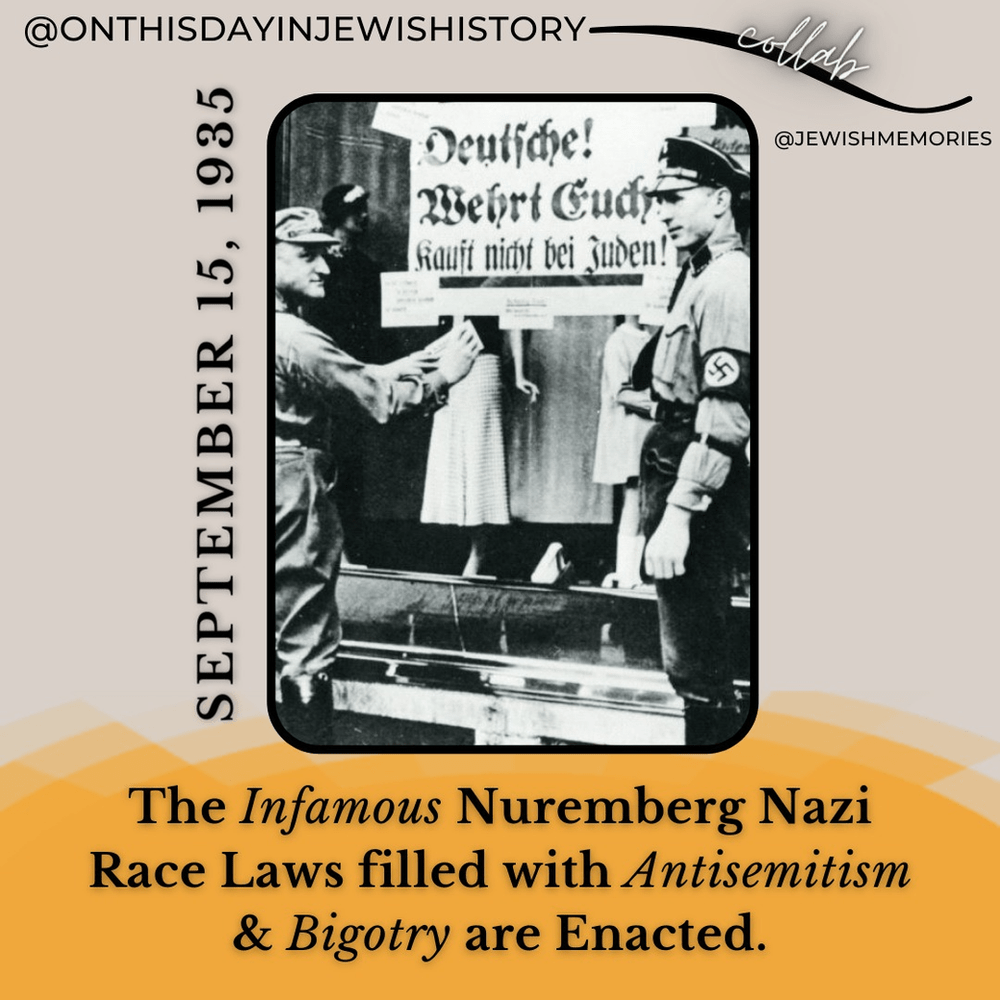The Enduring Impact of the Nuremberg Laws of 1935 on Antisemitism
On This Day in Jewish History: September 15, 1935. On this fateful day, the Nuremberg Laws were enacted, setting a precedent that had a lasting impact on antisemitic laws and attitudes. The significance of these laws continues to be studied today.
Contents
The Nuremberg Laws comprised two critical laws: the Law for the Protection of German Blood and German Honour and the Reich Citizenship Law.
The Law for the Protection of German Blood and German Honour
This law prohibited marriage and sexual relations between Jews and non-Jewish Germans, terming it as “race defilement” (Rassenschande). It also criminalized extramarital intercourse between these groups.
In addition, this law forbade Jews from employing female German maids under 45 years of age, assuming the likelihood of Jewish men leading such maids into committing “race defilement”.
The Reich Citizenship Law
This law declared that only individuals of “German or kindred blood” were eligible for Reich citizenship. Consequently, those who did not meet this criterion became state subjects without any citizenship rights. The Nuremberg Laws, notably, altered the legal definition of a Jew in Germany, thereby subjecting even more individuals to these oppressive regulations. Furthermore, the laws were expanded on November 26, 1935, to include Black people, as well as Roma and Sinti (Gypsies).
Mischlinge
Individuals who had one or two Jewish grandparents were labeled as Mischlinge. Depending on the proportion of their Jewish heritage, they were classified into ‘first degree’ or ‘second degree’ mixed race. Although they held rights akin to “racial” Germans, those rights were subsequently diminished through additional legislation.
Significance
The Nuremberg Laws marked a significant shift from traditional antisemitism, which was based on religion, to persecution focused on race, blood, and lineage. They laid the groundwork for a systematic oppression against Jews and inspired similar laws across Europe. By 1941, multiple countries either allied to or dependent on Germany had enacted their own forms of antisemitic legislation.
Resources
Original Text Source: Yad Vashem
Tags
Nuremberg Laws, Nazi Germany, antisemitism, Reich Citizenship Law, Law for the Protection of German Blood, Mischlinge, Rassenschande



Start the discussion at community.jewishoriginal.com